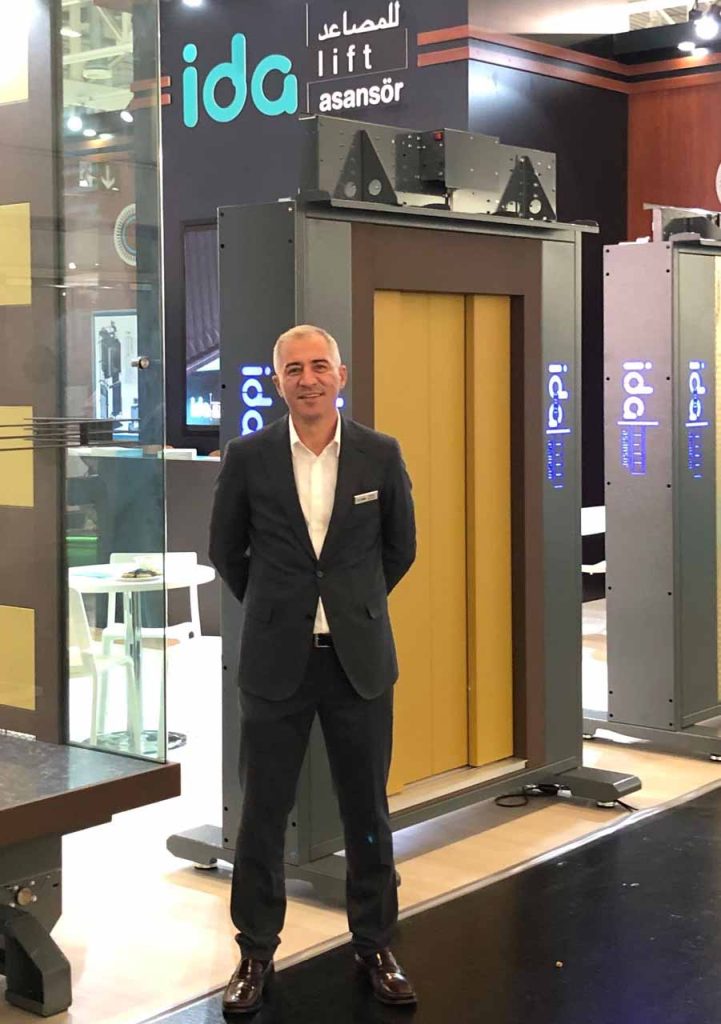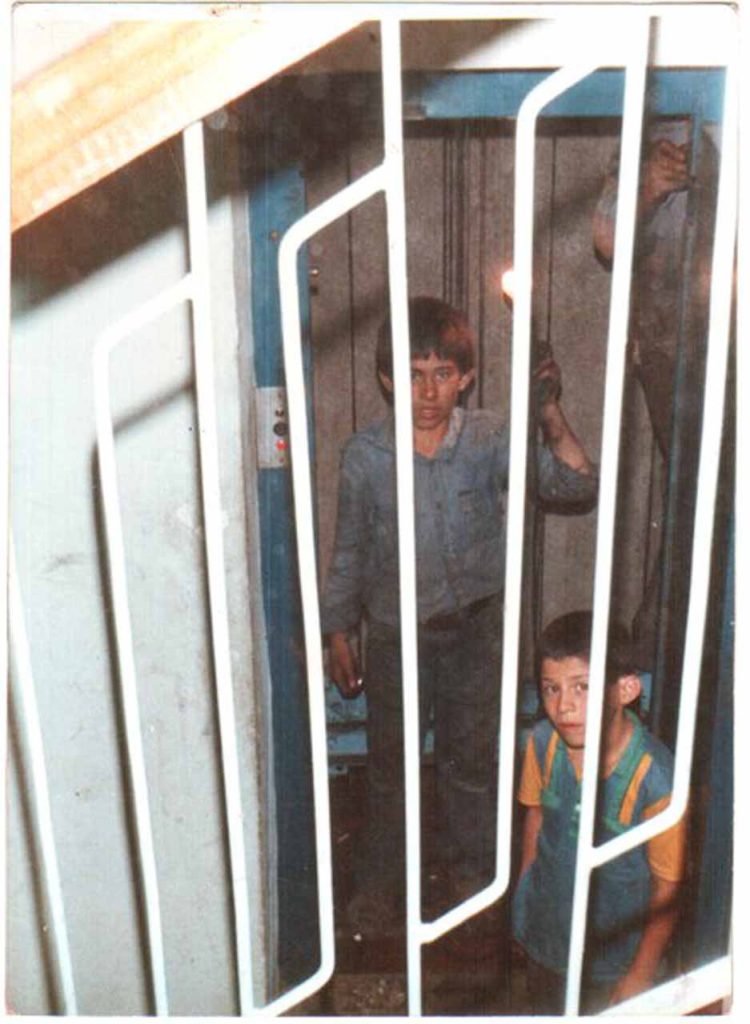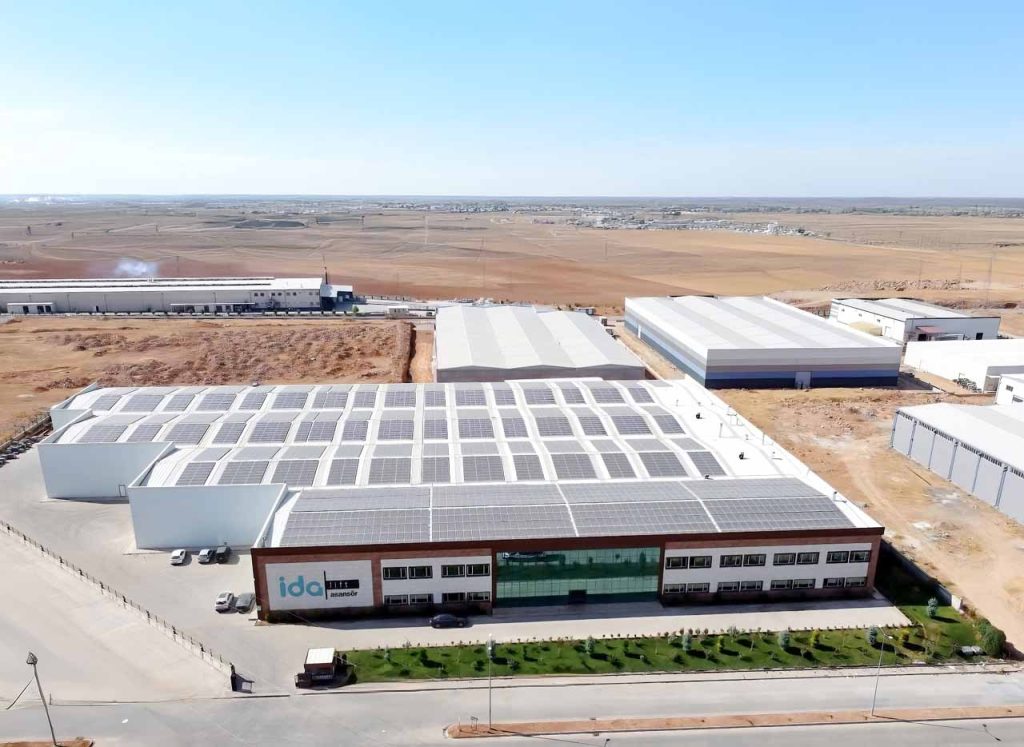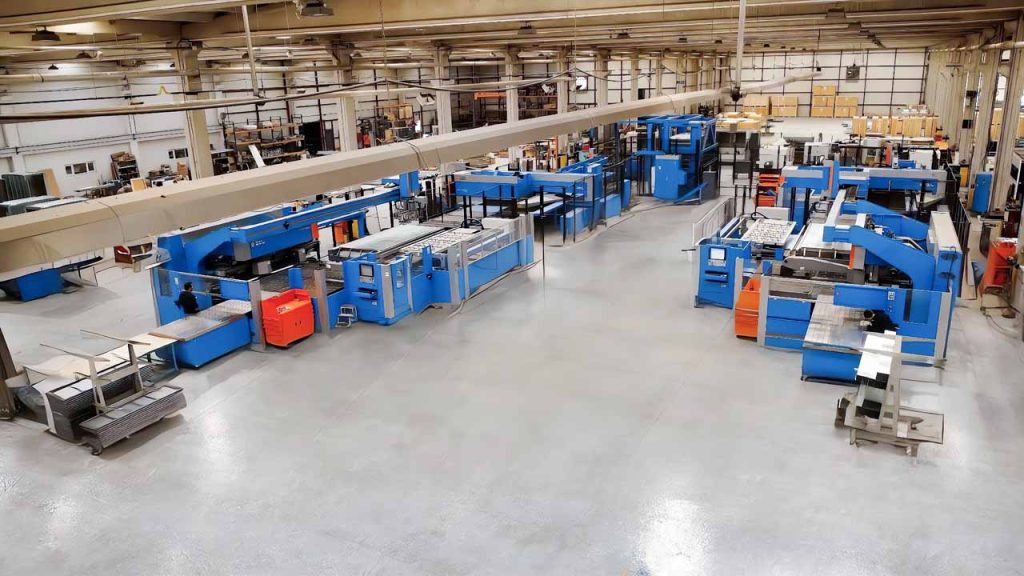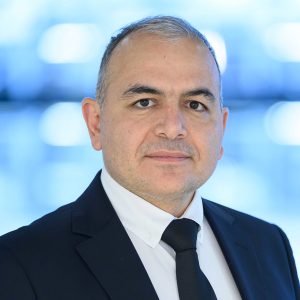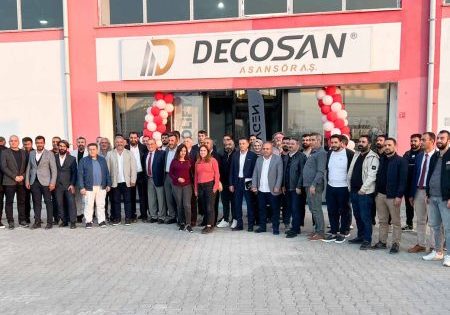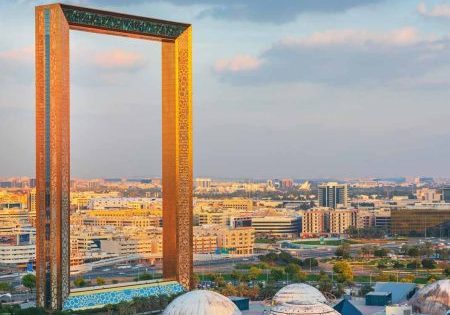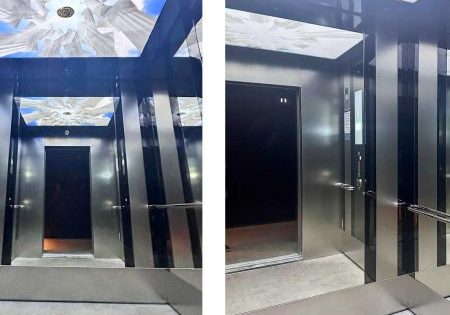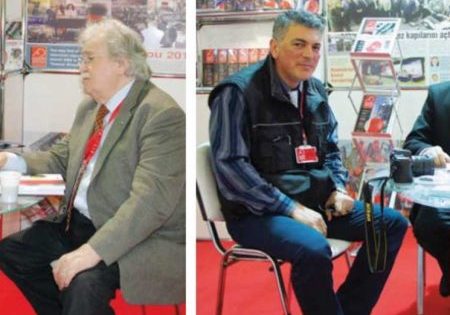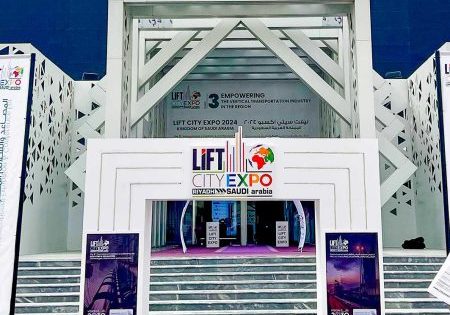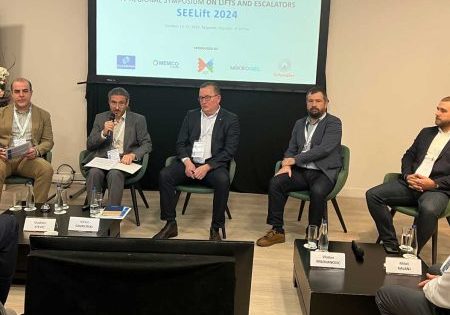The Sole Lift Company on the U.S. Sanctions List: İDA Asansör
Nov 17, 2024
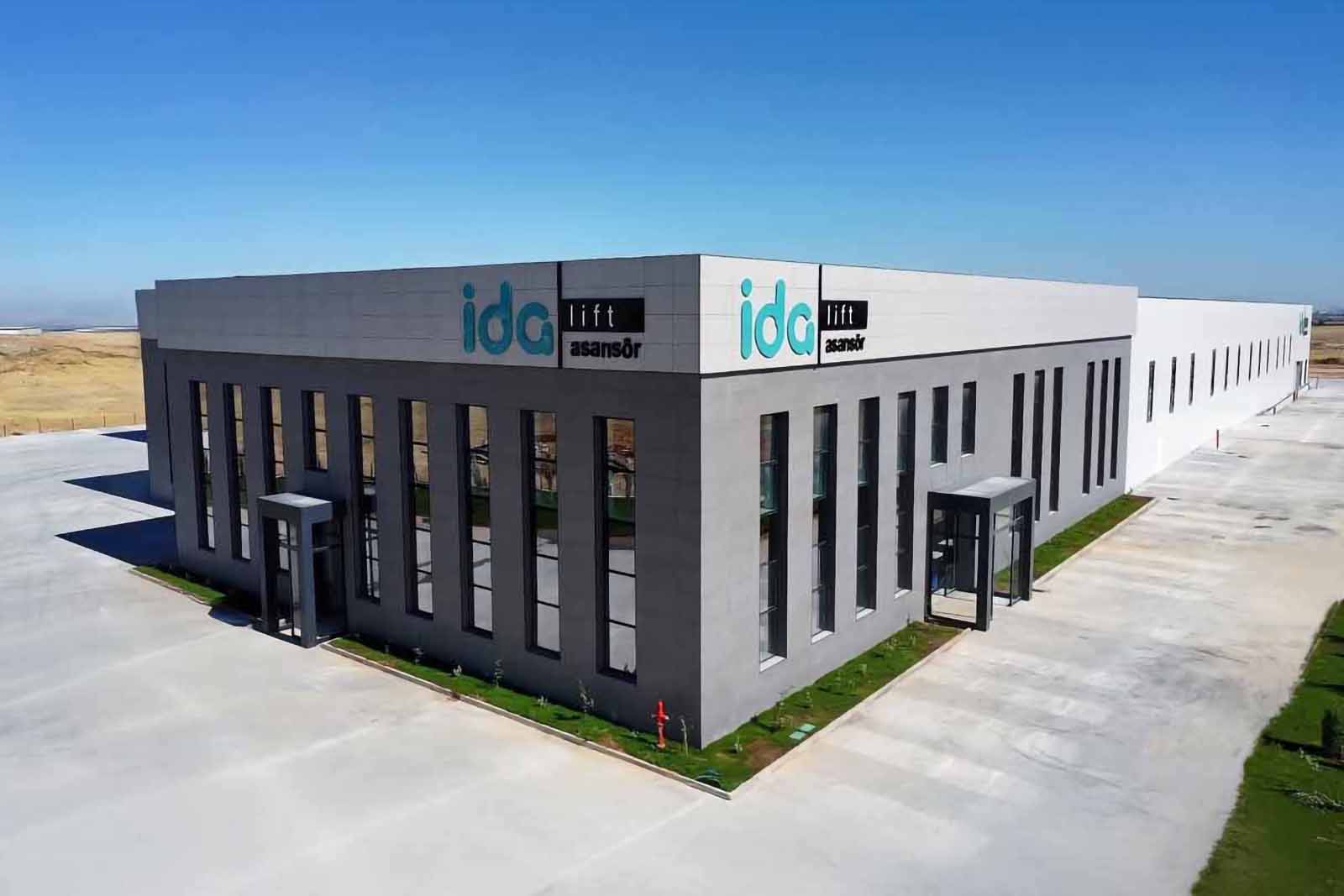
On May 1, the U.S. Department of the Treasury announced sanctions targeting companies and individuals from Türkiye, China, Hong Kong, Azerbaijan, Belgium, Slovakia and the U.A.E. These sanctions are imposed on entities providing technology and equipment support to Russia’s defense sector amid its ongoing conflict with Ukraine. One company was particularly notable in this decision. For the first time in U.S. history, a company from the lift industry has been added to the sanctions list: İDA Asansör San.Tic.Ltd.Şti.
We spoke with Ömer Baran, founder and general manager of Malatya-based İDA Asansör San.Tic.Ltd.Şti., one of Türkiye’s top five exporting companies in the lift sector. Here are the eagerly anticipated questions and answers from our conversation:
BY: Mr. Baran, for those unfamiliar with you, could you briefly introduce yourself?
ÖB: I come from a family rooted in this profession. My father worked in lift assembly, maintenance and modernization in Diyarbakır. I began working alongside him at the age of 10, learning the trade hands-on from the ground up. After completing my military service in 1999, I established my own company, DİMA Lift Ltd. Co., independently from my family. Through DİMA, we managed the assembly of approximately 500–600 units annually for major public projects, including TOKİ housing, Emlak Konut developments and various hospitals. To date, we have successfully completed more than 10,000 lift installations, including Emlak Konut and TOKİ projects, as well as 27 hospital and 13 student dormitory installations, without any issues. We have also implemented high-speed lift systems reaching up to 3 m/s. Today, DİMA Lift continues to provide installation and maintenance services for both public and private sector projects.
In 2009, we founded İDA Asansör in Malatya and began manufacturing lift cars and machine chassis for the industry. Shortly after, we expanded into producing automatic door panels and frames for certain global brands. During this period, it became evident that these international companies primarily viewed us as assembly suppliers. Their objective was not to support our growth but rather to promote their own products. In 2012, we transitioned away from manufacturing swing doors and focused exclusively on automatic doors. At the time, these global companies advised us, saying, “Don’t bother producing doors; we’ll supply them to you at a lower price,” even offering discounts of up to 50%. Nevertheless, we were committed to developing our own doors, even at a higher cost. This led us to design our door mechanism and initiate mass production. When we created our first door, our production costs indeed tripled, as predicted. However, we gained invaluable expertise, which was our main priority. Following this, we expanded to offer complete lift systems for both manufacturing and supply.
In 2014, when our existing facility became insufficient, we required a larger space. Despite the challenging climate for investments during the 2016 coup attempt, we completed the construction of our 20,000-m² factory in the Malatya 1st Organized Industrial Zone and relocated operations there. We also expanded our production capacity by enhancing our machinery with advanced equipment and established a new line to process components in-house. Additionally, we invested in renewable energy by installing a 1.2-Megawatt Solar Power Plant (SPP) on the factory roof, equipping it with solar panels.
Meanwhile, we continued exploring both domestic and international markets, attending trade fairs in approximately 16 countries. This led to the initiation of exports, and today we are well-positioned to compete with established brands in global markets. Currently, international sales contribute a substantial portion of our revenue. In 2019, our annual production capacity ranged from 250 to 300 units; today, it has surged to between 1,800 and 2,000 units per year. By October 2024, our exports of complete systems have reached 1,400 units, verifiable through customs declarations. From 2021 to 2023, we invested an additional US$10 million, which included the installation of two Prima Power automated production lines.
By late 2023, to meet our growing space requirements, we completed and commissioned an additional 14,000-m² facility located on the main street adjacent to our existing 20,000-m² factory.
To improve accuracy in monitoring production, finance and accounting processes, we implemented enterprise software systems, including the globally recognized SAP.
Our team of engineers and skilled personnel has expanded both in size and expertise, enabling us to confidently state that we now possess the most advanced R&D system in the region.
BY: In 2022 and 2023, you ranked among the top five lift companies with the highest exports in Türkiye. Was your success primarily driven by exports to Russia?
ÖB: No. Attributing our success solely to Russia would be an oversimplification. We are also active in North Africa and the Middle East, where we consistently export our full production to established markets. We’re focused on expanding our production capacity in a sustainable manner and continue to explore new markets abroad, including Europe. You may not be aware, but we have a 3,000-m² logistics warehouse in Algeria where we collaborate with regional business partners. We handle production here, and they manage the sales. Beyond sales, we also provide them with engineering services, unlike the approach taken by many global companies that treated us solely as suppliers.
“This is a violation of a country’s sovereignty.”
BY: How did you react when you found out you were added to the U.S. sanctions list? What was your initial feeling?
ÖB: Yes. It was truly a day of uncertainty — May 1, 2024. Just a week prior, we had returned from Russia with excitement over significant deals and new orders. That day happened to be Labor and Solidarity Day, so it was a public holiday. On May 2, at 9:30 in the morning, we started receiving calls from banks informing us that we were on the OFAC — Office of Foreign Assets Control — list. We didn’t know what OFAC was at the time and asked for clarification, only to learn it was the sanctions list from the U.S. Treasury Department. From our initial research, it seemed we were sanctioned due to our trade with Russia. We didn’t yet know the full impact, but within hours, every bank we worked with contacted us, saying they were closing our accounts. We had loans scheduled for repayment through 2027 for our investments; they now demanded immediate closure. They also informed us that our workplace and vehicle insurance policies were being canceled. It became clear that these banks weren’t acting independently but as extensions of U.S. interests. The U.S. excluded us from the SWIFT network, and, astonishingly, our banks subsequently limited our access even to Turkish lira transactions.
Imagine that we owe you money — how can we make the payment? We have domestic bills and staff salaries to cover. Since the banks have closed their systems, we cannot conduct wire transfers or EFTs. The only option left for us is to withdraw all our funds and deposit them individually into the accounts of those we owe. We’ve fallen into a situation worse than Tahtakale. However, we still sought solutions. In our desperation, we discovered the true value of PTT Bank and its significance as a national institution. We began processing our payments through PTT Bank, which felt more like a lifeline than a traditional bank. It raised the question: Why didn’t all banks offer similar services without discrimination? When we contacted the U.S. Embassy, they informed us that we had been removed from the SWIFT system, effectively stating that we could not conduct transactions in their national currency. This led us to wonder why our banks were not permitting transactions in Turkish lira. We understood that our company and I were inexplicably excluded from access to these services, although the Turkish lira is legally protected and mandatory for domestic transactions, and there are constitutional obligations for payments above certain amounts to be processed through the banking system. Such a situation is untenable! Consider what investors in the country are enduring. When we inquired further with the U.S. Embassy, they explained that IDA Lift was placed on the secondary sanctions list and that additional sanctions could be imposed by our own banks.
On May 10, we submitted petitions to the OFAC Sanctions Office, the U.S. Department of the Treasury, the U.S. Embassy, the Turkish Ministry of Foreign Affairs, the Ministry of Treasury, the Ministry of Trade and the Ministry of Industry to assert our right to seek justice and defense. Despite the passage of seven months, we have yet to receive a response from any institution, aside from a few phone calls. This is a clear violation of a country’s sovereignty — nothing less. The U.S. does not uphold fairness in its dealings; one only needs to look at the outcomes it has produced in Iraq, Syria, Libya, Afghanistan and Palestine. Consider the economic repercussions we have faced. Why does this happen? Because the U.S. dollar is the reserve currency. Imagine a scenario where, regardless of a person’s guilt, their fundamental rights to food, water and shelter are stripped away as punishment. This is a violation of human rights. Lifts serve as essential infrastructure, particularly for people with disabilities, the elderly, women, hospitals, nursing homes, schools and dormitories.
However, the U.S. claims that these lifts can be used for military purposes. By that logic, should we also restrict the sale of tomatoes and textiles? Soldiers consume tomatoes and wear textiles.
Ultimately, as a financially and infrastructurally robust company, we have managed to navigate this challenging situation.
BY: What was the most challenging aspect of this process for you?
ÖB: Turkish banks and companies in our sector in Türkiye posed significant challenges. At the very least, we expected civil society organizations to support us, as well as assistance from the relevant public sector agencies and departments. It was disheartening to see a facility that invests in and produces for its country — one that generates foreign currency and, perhaps most importantly, creates employment — be so swiftly disregarded, leaving us to navigate this situation alone.
What affects us today could affect you tomorrow.
BY: How did you overcome this turndown?
ÖB: By focusing on production. We are a company that consistently maintains a supply chain and keeps a stock of raw materials. Whenever we had capital, we invested it back into our business, enhancing our facilities, systems and personnel. Unlike many around us who invest outside their sectors for short-term gains, we have always reinvested our profits within our industry. This approach has proven valuable during this challenging period; we recognized the importance of maintaining stock, which enabled us to reduce our current liabilities from 180 million TL to 30 million TL in just three to four months. In fact, we were prepared to settle that 30-million TL debt. However, some financial institutions declined to accept early repayment to avoid forfeiting the advance fees they had charged.
Additionally, as you may know, this year we not only settled our debts but also completed and inaugurated our second facility, investing US$4 million within a short span of seven months.
BY: How did the companies you trade with respond? How did your other customers outside of Russia, particularly your suppliers, react?
ÖB: We have not encountered any negativity from our business partners abroad, including our customers, and we have not experienced any blockages or market losses. Our current turnover reflects this, and in many ways, we navigated this challenging period successfully alongside our domestic and international partners, which clearly demonstrates the trust we have established in the markets. Of course, we faced difficulties in processing payments to our partners in the Far East and Europe due to the closure of the SWIFT system. However, we managed to overcome these challenges.
BY: Will you continue exporting to Russia?
ÖB: Absolutely!
We have complete confidence in what we do. We do not manufacture any prohibited products; we exclusively produce lifts for human transportation. The entirety of our production and export activities can be verified by all relevant government agencies, particularly the Customs Directorates. As a company, we have consistently expressed our willingness to share all necessary documentation regarding our production facilities. Allow me to reiterate that commitment through this platform.
This opportunity for self-expression, which you have provided, is of great significance to the country, and we appreciate it. We would like to take this moment to thank you, your management and your entire team.
BY: What final thoughts would you like to share?
ÖB: Yes. Are we to live in constant fear of those who dictate what we can produce, what we cannot and what we are permitted to sell? Throughout our lives, we have fought tirelessly. This is true in every aspect of life. How can anyone accept this situation? We have dedicated our lives to creating this product and building this brand. We have been advised to shut down IDA and operate under different company names, among other suggestions.
We have devoted a lifetime to this brand. If pigs had wings, they would fly.
We are idealistic individuals. We have participated in numerous trade fairs, invested millions of dollars, traveled tens of thousands of kilometers and sacrificed sleep for days to promote our products. We have strived to make this brand a leader first in Türkiye and then in the world. Now, consider our perspective: Why are the OFAC sanctions exclusively targeting IDA? Today, there are German, Italian and Greek companies exporting millions of dollars to Russia, with their export figures often exceeding ours. Even after our company was placed on the sanctions list, these firms continue to export millions of dollars. A look at the customs records will confirm this. Why us? Because we are a Turkish company. Would they face the same scrutiny if we were a European or U.S. company? The public can form their own conclusions on this matter.
Get more of Elevator World. Sign up for our free e-newsletter.
